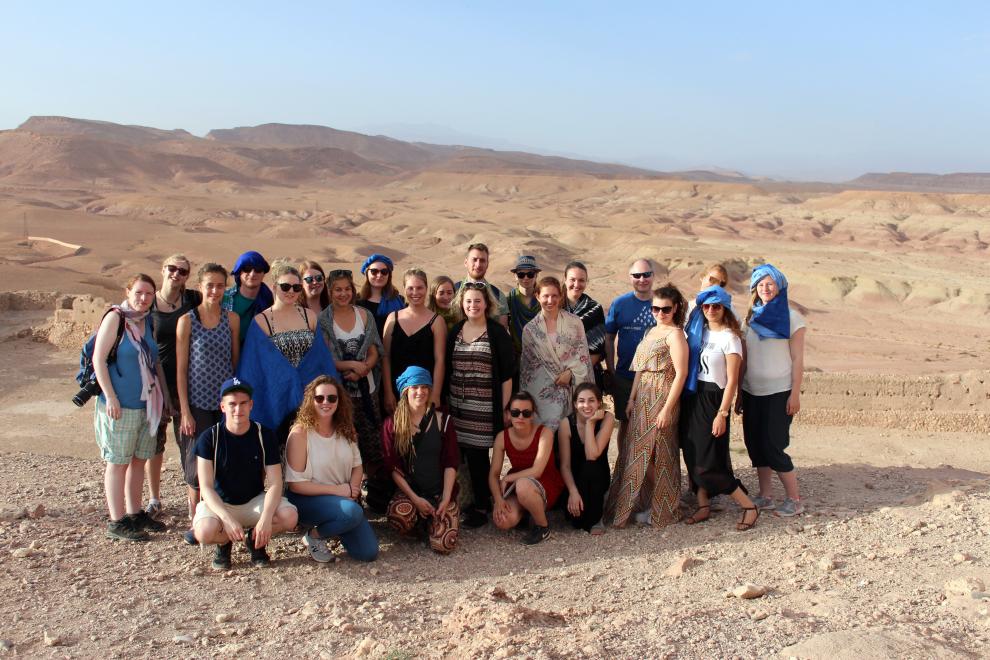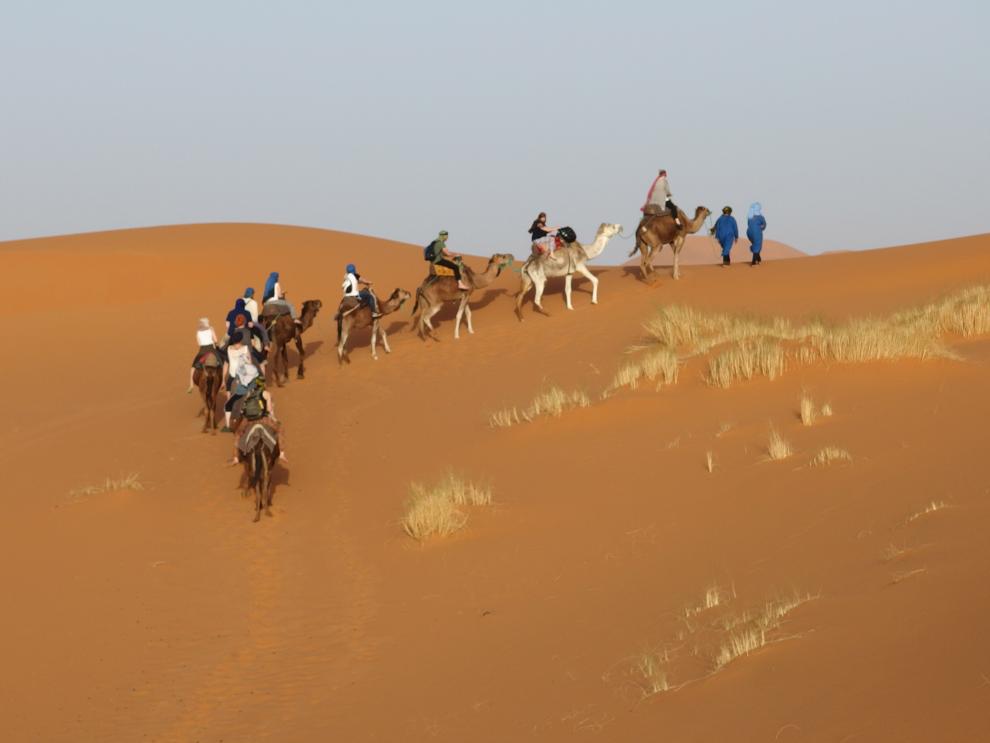Sustainable Tourism in a setting plucked from A Thousand and One Nights
As part of their course ‘Economy, Ecology and Ethics’, students of the Sustainable Tourism degree programme of the Faculty of Society and Economics at Rhine-Waal University of Applied Sciences went on a week-long excursion to Morocco with Professor Dr Dirk Reiser.
Kleve/Kamp-Lintfort, 1 August 2016: 24 fourth-semester undergraduates studying Sustainable Tourism at Rhine-Waal University of Applied Sciences recently spent a week studying tourism in Morocco. The students explored the local Moroccan culture and took advantage of many opportunities for discussions with the locals. As part of the excursion, the students also held presentations for the group on various topics relating to the study of sustainable tourism.
The excursion began with a trip to Marrakesh and a tour of the historical centre of the city, the medina, which provided a solid basis for an analysis of the city’s potential for tourism. The students explored the interactions between colonialism, capitalism and tourism using the example of the ongoing and gentrification of Marrakesh, which they could witness first-hand. Gentrification refers to the process of socio-economic urban restructuring that results in the displacement of lower-income residents when, for example, extensive renovations and restoration of existing architecture and/or an influx of wealthy residents drives up living costs and property values sharply. The medina of Marrakesh is one of many excellent examples of this process in action.
Over the course of their week in Morocco, the students studied numerous topics affecting current and future tourism, for example the effects of climate change on UNESCO World Heritage Sites, local agriculture and land use. The group also took a detailed look at sustainable tourism concepts specifically for developing countries based on actual examples, including a community-based tourism project, film tourism and hotel management. To that end, the group visited the ‘Kasbah du Toubkal’, an eco-lodge distinguished by the National Geographic Society, before they continued on to the ancient city of Aït Benhaddou, a World Heritage Site and a favourite film location of Hollywood (‘Game of Thrones’, ‘Gladiator’).
Representatives of the Moroccan Tourism Authority also spoke with the students about their own vision and efforts in the area of sustainable tourism in Morocco. “This excursion provided the unique opportunity to analyse the tourism industry in Morocco first-hand, in a way that isn’t possible through lectures alone. By speaking directly with the locals and experiencing the local culture for ourselves, Morocco and its tourism industry had a very unique impact on us,” explained Pascal Helfer, student and elected speaker of the ‘Sustainable Tourism’ degree programme.


